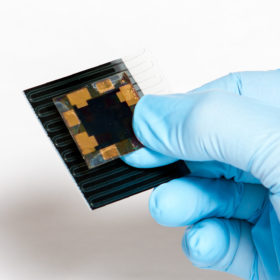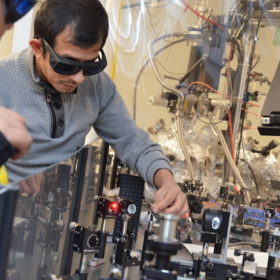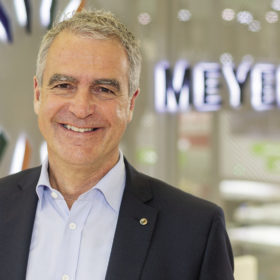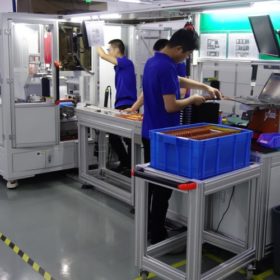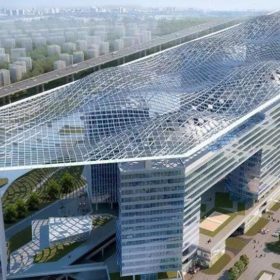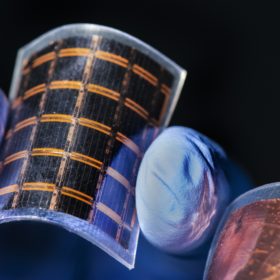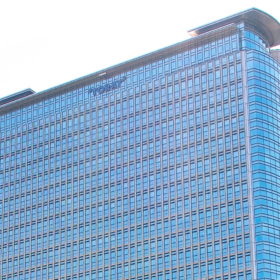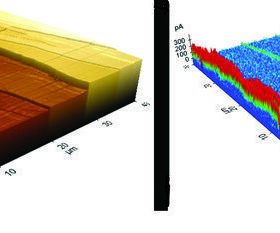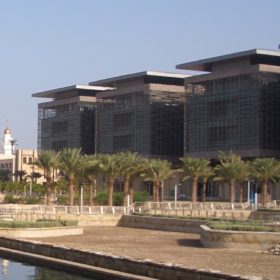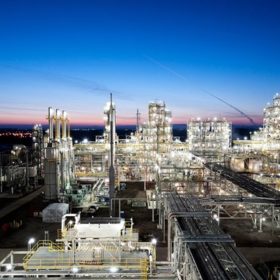Miasolé hits 20.56% efficiency with flexible CIGS technology
California based Hanergy subsidiary Miasolé has broken its own internal record for thin film cell efficiency, surpassing the 20% mark. The efficiency of 20.56% on a flexible substrate has been confirmed by U.S. National Renewable Energy Laboratory.
One atom layer to ‘free the electrons’
Scientists from the University of Kansas say adding a layer of two-dimensional semiconductor molybdenum disulfide can greatly improve the performance of organic solar cells. The research could also inform efforts to engineer the interface between layers in hybrid organic cells.
Meyer Burger seals $100 million HJT order, expects to hit break-even in first half
Swiss equipment supplier Meyer Burger has signed a contract to supply heterojunction cell manufacturing equipment to an unnamed North American manufacturer. The company also posted its preliminary results for the first half, posting a $14 million EBITDA loss but stating it expects to break even for the period after selling its wafer business.
Eliminate hydrogen for better battery performance, scientists say
Scientists at the University of California, Santa Barbara who are working with sodium-ion batteries have found that the unintended presence of hydrogen is to blame for many of the technology’s shortcomings in terms of degradation and performance loss. Keeping hydrogen out of the materials throughout production could allow sodium-ion batteries to achieve performance levels competing with their lithium-ion counterparts.
Shanghai’s Rafael Gallery to host 1 MW of Hanergy modules
Chinese thin film manufacturer Hanergy has announced plans to integrate its CIGS modules into the 150,000 square meter rooftop of a ‘sky bridge’ project planned as part of a major ‘tech city’ project under construction in Shanghai.
Sensing an opportunity for indoor PV
A new paper published by scientists from the Massachusetts Institute of Technology examines the potential for integrating small solar cells into the wireless sensors needed to power the fast-growing internet of things (IoT) ecosystem, many of which are located indoors. This market could represent a unique opportunity for thin film PV technologies, and perovskites in particular, to reduce the risk inherent to ramping up commercial scale production.
Japan’s Toray to manufacture battery components in Europe
Japanese materials company Toray has announced plans to open a facility for manufacturing battery separator films for use in lithium-ion batteries. The factory is expected to begin operations in July 2021 and will increase Toray’s production material for the component by around 20%.
Another route to high performance perovskites
Scientists at Pennsylvania State University have developed a new class of perovskite materials, which they say exhibits unique properties that could have several implications for the development of perovskite solar cells, as well as other electronic applications.
Scientists set new efficiency record for single crystal perovskite
Scientists at Saudi Arabia’s King Abdullah University of Science Technology have set a new efficiency record of 21.09% for a single crystal perovskite. The researchers say this highlights a place for the technology to develop alongside the multicrystalline versions which are progressing toward commercialization.
REC Silicon lays off 100 workers at U.S. facility
Norwegian headquartered polysilicon manufacturer REC Silicon has announced that it will lay off another 100 workers at its Moses Lake facility in the western United States, as the factory heads into long term shutdown.

